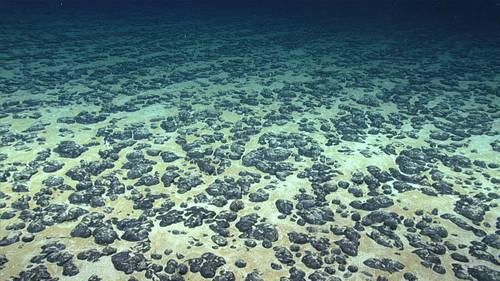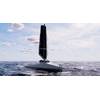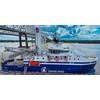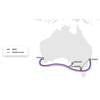UN to Start Taking Deep-sea Mining Applications This July

File photo. Image courtesy of the NOAA Office of Ocean Exploration and Research, 2019 Southeastern U.S. Deep-sea Exploration.
The International Seabed Authority will start accepting applications in July from companies that want to mine the ocean's floor, a decision that came after the U.N. body spent the past two weeks debating standards for the new and controversial practice.
Deep-sea mining would extract cobalt, copper, nickel, and manganese - key battery materials - from potato-sized rocks called "polymetallic nodules" on the ocean's floor at depths of 4 to 6 km (2.5 to 4 miles). They are abundant in the Clarion-Clipperton Zone (CCZ) in the North Pacific Ocean between Hawaii and Mexico.
The ISA's governing council formulated a draft decision on Thursday after meeting in Jamaica that allows companies to file permit applications starting on July 9, a deadline set in motion by actions the island nation of Nauru took in 2021, according to a copy seen by Reuters.
The ISA's staff would then have three business days to inform the council. The council plans to meet virtually before July to debate further whether approval of such applications could be delayed once received, according to the document.
"This deeply irresponsible outcome is a wasted opportunity to send a clear signal ... that the era of ocean destruction is over", said Louisa Casson of Greenpeace, which opposes the practice due in part to concerns it could harm whales and other wildlife.
The Metals Co, which has a deal to supply metals to Glencore Plc, is one of the most prominent voices advocating for the practice. Its executives have repeatedly said they believe deep-sea mining would have less impact than traditional mining for battery metals on land.
China is a leader in deep-sea mining exploration, but Chile, France, Palau and Fiji, among other nations, have called for a global moratorium on the practice, citing environmental concerns and a lack of sufficient scientific data.
(Reuters - Reporting by Clara Denina and Ernest Scheyder; Editing by Sandra Maler)


















 December 2025
December 2025



